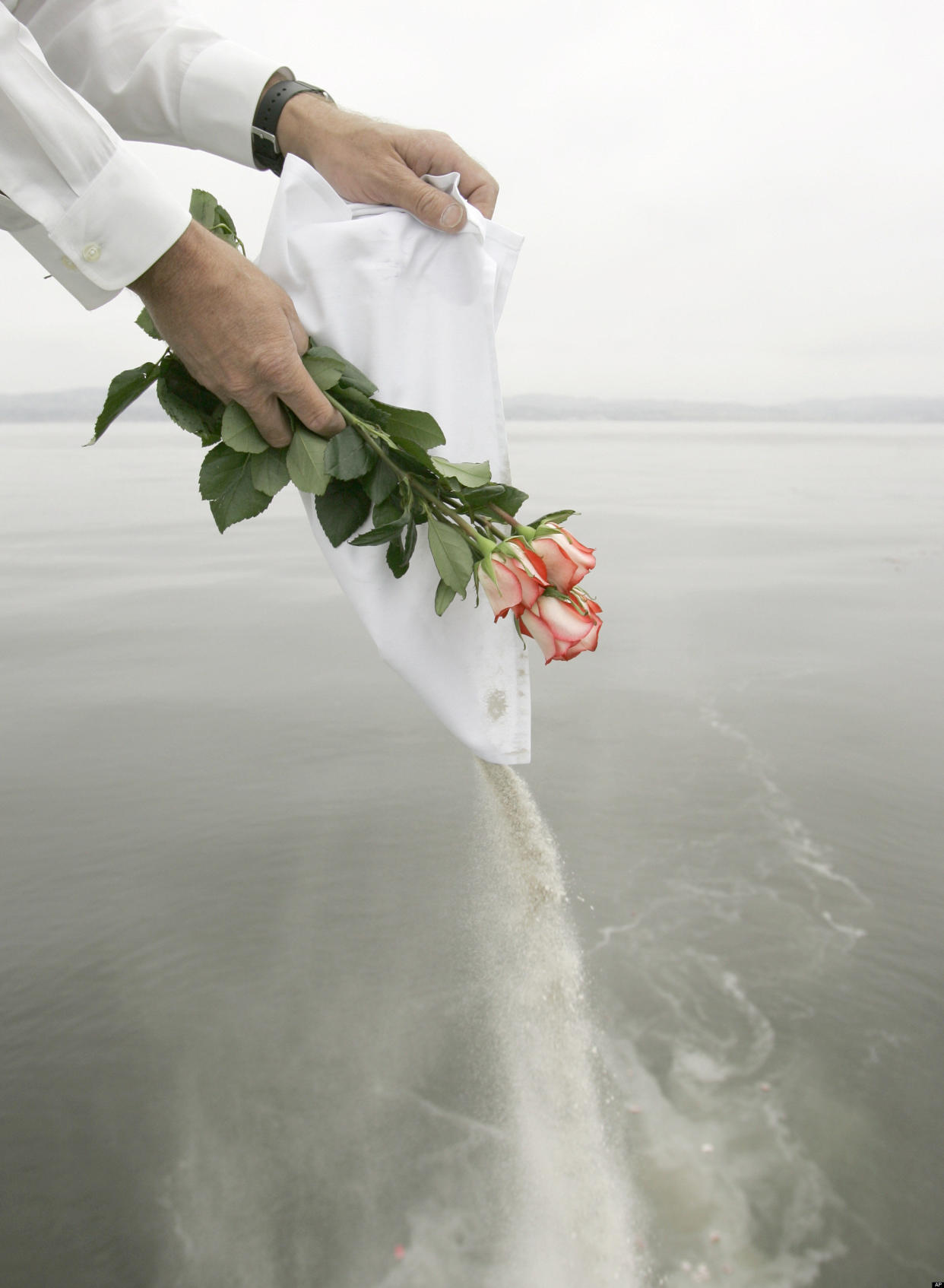The Weight Of My Brother's Ashes: Further Trials In Grieving

You read about people scattering ashes, you see it in movies, but to really do it, to really handle them and toss them into the sea -- what is that really like? Will the music swell into an emotional crescendo? Will there be a wind beneath my wings? Will I feel closure, or just emptiness?
And there, the other day, in the Port of Jaffa, nobody would take me to sea. A high wind had come up, and the sky was dark on the horizon in the direction of Gibraltar. White caps had formed, and all the boats were safely in the harbor. It was humid and the air was close -- it's still North Africa, after all.
I finally found someone who would take me out on his boat -- but only as far as the lighthouse! -- for 100 shekels. That's about $25.
He never traveled, my brother. Truly, never ever. I think he was afraid to. Two weeks before he died, he said that he had seen a cooking show set in North Africa and that it had inspired him to perhaps see that place. I fanned the fire and over-enthusiastically (and obviously, I am afraid) said we'd plan a trip together, he and I! We'd go to North Africa! But two weeks later he was dead.
As I clutched the container of my brother's ashes to my side in the heaving boat, I found that I had grown oddly attached to them. I didn't want to throw them into the sea; it was like throwing a part of him away. They had been with me since two weeks after his death. They had traveled from Northern California to my home in Los Angeles. They had traveled with me to New York and then to Israel; I had grown accustomed to their presence. The ashes were all that remained of him.
It's been five months this week since my brother took his own life. Almost half a year. And while the shock has diminished, the absolute vehemence with which my brain still rejects the idea that my brother is no more is surprising, even to me.
And so I was on a tiny boat in a gathering storm in the Port of Jaffa near the lighthouse. I held on to the big plastic jar within which was the bag of ashes and waited grimly for the right place to do it. The driver turned the boat to an angle so that the ashes wouldn't blow back onto me and indicated that it was time. I stumbled to the side of the boat with the twisty-tied plastic bag and tried to prevent the waves from tossing me overboard. I looked at my habibi and pleaded for his help with my eyes. He came to me and held me steady. I opened the bag. Ashes are surprisingly heavy. And they are gritty, with pieces of bone in them. My stomach clenched. A bag of ashes. My big brother. Pete.
I should say a prayer, I thought. But I was without words. Instead, I opened the bag, poured the ashes and thought,Now you've traveled, you son of a bitch. Now you have traveled.
The Mediterranean Sea is very blue, even in a storm. The ashes created a swirling cloud of darkness. Some sank, some spread out. The driver turned the boat back to the port, and the muezzin call to prayer from the nearby mosque battled with the wind.
The driver and my habibi spoke in Hebrew and in Arabic about the weather and how the driver had done this many times. I ignored them both, too emotional to speak. As the boat chugged back into the port, we passed a wedding couple, posing for pictures against the jetty with gathering storm clouds behind them. And it began to rain.


